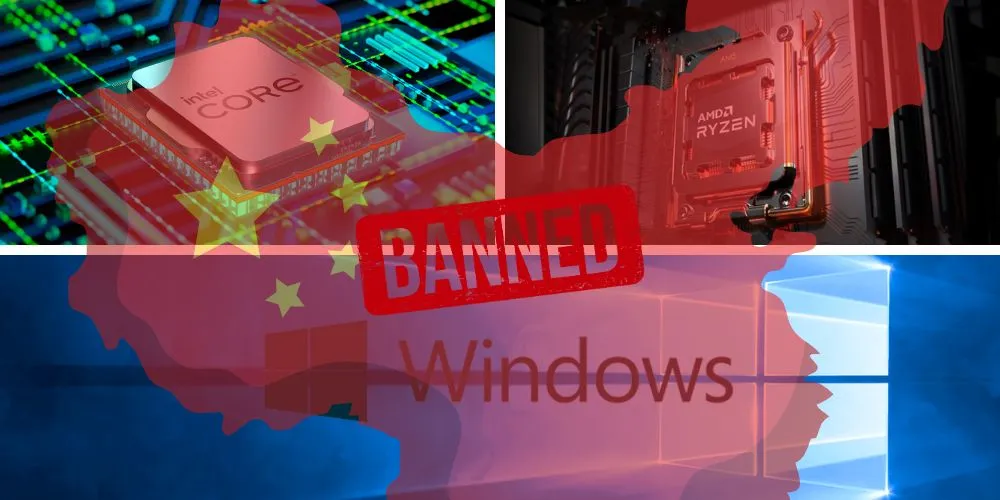Key Points:
- China introduces guidelines to phase out U.S. processors and operating systems in government computers and servers.
- The guidelines effectively block chips from Intel and AMD, as well as Microsoft’s Windows operating system and foreign-made database software.
- This development comes amidst tensions between the U.S. and China over technology dominance, particularly in the semiconductor sector.
- U.S. export restrictions and regulations have targeted Chinese access to advanced semiconductor technologies and equipment.
In a significant move aimed at bolstering its domestic semiconductor industry and reducing reliance on foreign technology, China has introduced new guidelines that will phase out U.S. processors in government computers and servers. The guidelines, unveiled on December 26 and now being enforced, effectively block chips from industry giants Intel and AMD, as well as Microsoft’s Windows operating system and foreign-made database software, in favor of Chinese alternatives, as reported by the Financial Times.
Under these guidelines, government agencies at and above the township level are mandated to procure “safe and reliable” processors and operating systems, marking a strategic shift towards supporting domestic technology solutions. Both AMD and Intel declined to comment on the report.
This move comes amidst a broader context of escalating tensions between the U.S. and China over technology dominance, particularly in the semiconductor sector. Semiconductors, essential components powering various devices from smartphones to medical equipment, have become a focal point in the technology war between the two countries.
The U.S. has previously implemented export restrictions to cut off Beijing’s access to key semiconductor equipment and technologies. In October 2022, Washington introduced rules restricting China’s access to advanced semiconductor chips, citing concerns over potential military applications.
Furthermore, in October 2023, the U.S. rolled out new regulations targeting chip design firm Nvidia, preventing the sale of advanced AI chips to China. This follows a series of sanctions imposed on Chinese tech companies like Huawei and SMIC (Semiconductor Manufacturing International Corporation) since 2019, aimed at limiting their access to advanced technology.
Due to export controls on such technologies, SMIC, China’s largest chipmaker, has faced additional challenges in obtaining critical equipment for chip manufacturing, such as extreme ultraviolet lithography machines.
Despite these challenges, China’s domestic chip equipment manufacturing firms have seen significant revenue growth, with the top 10 companies reporting a 39% increase in revenue in the first half of 2023 compared to the previous year, according to Shanghai-based CINNO Research.










